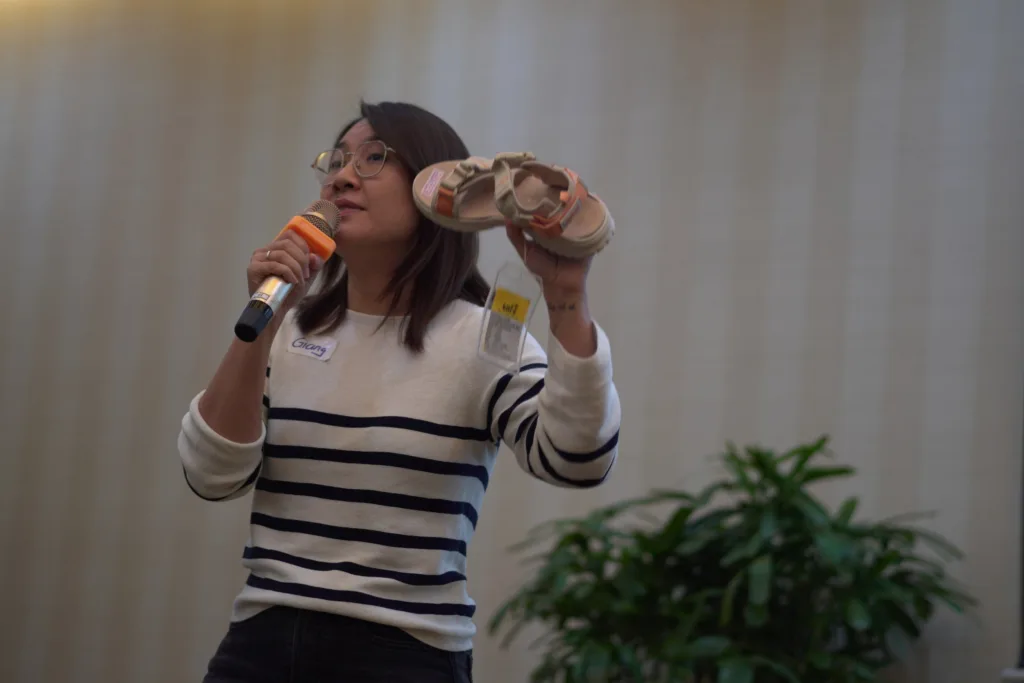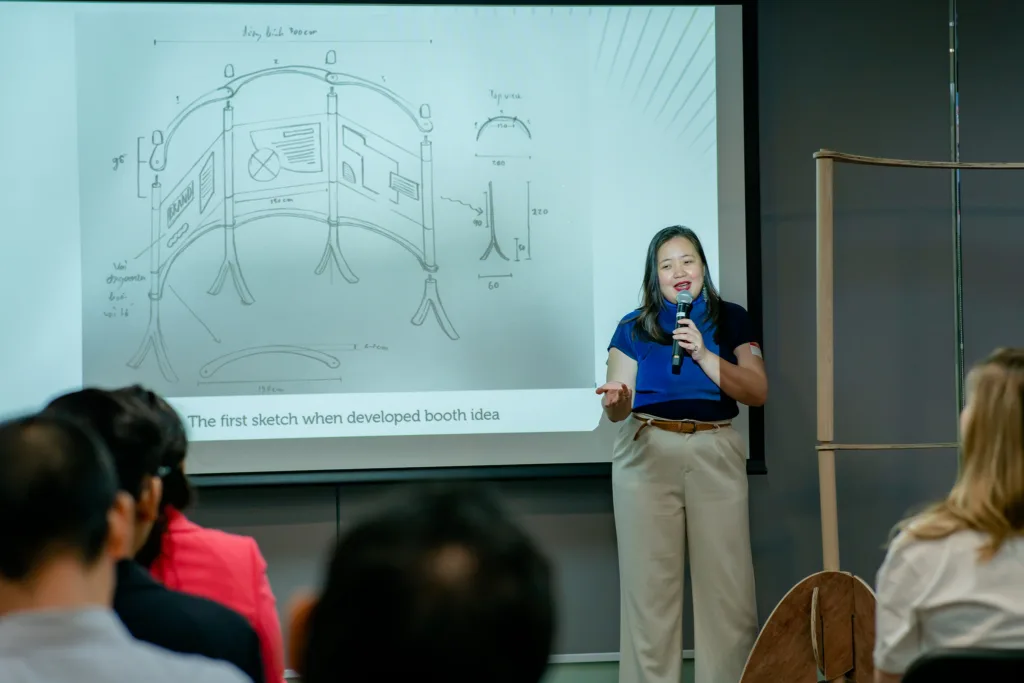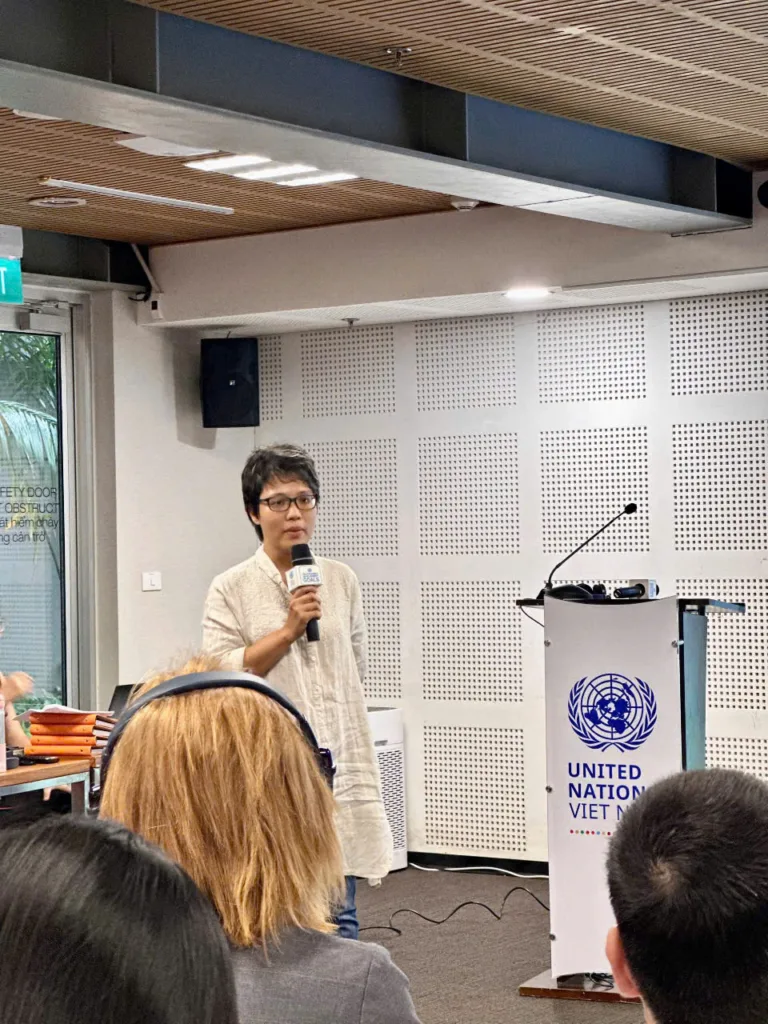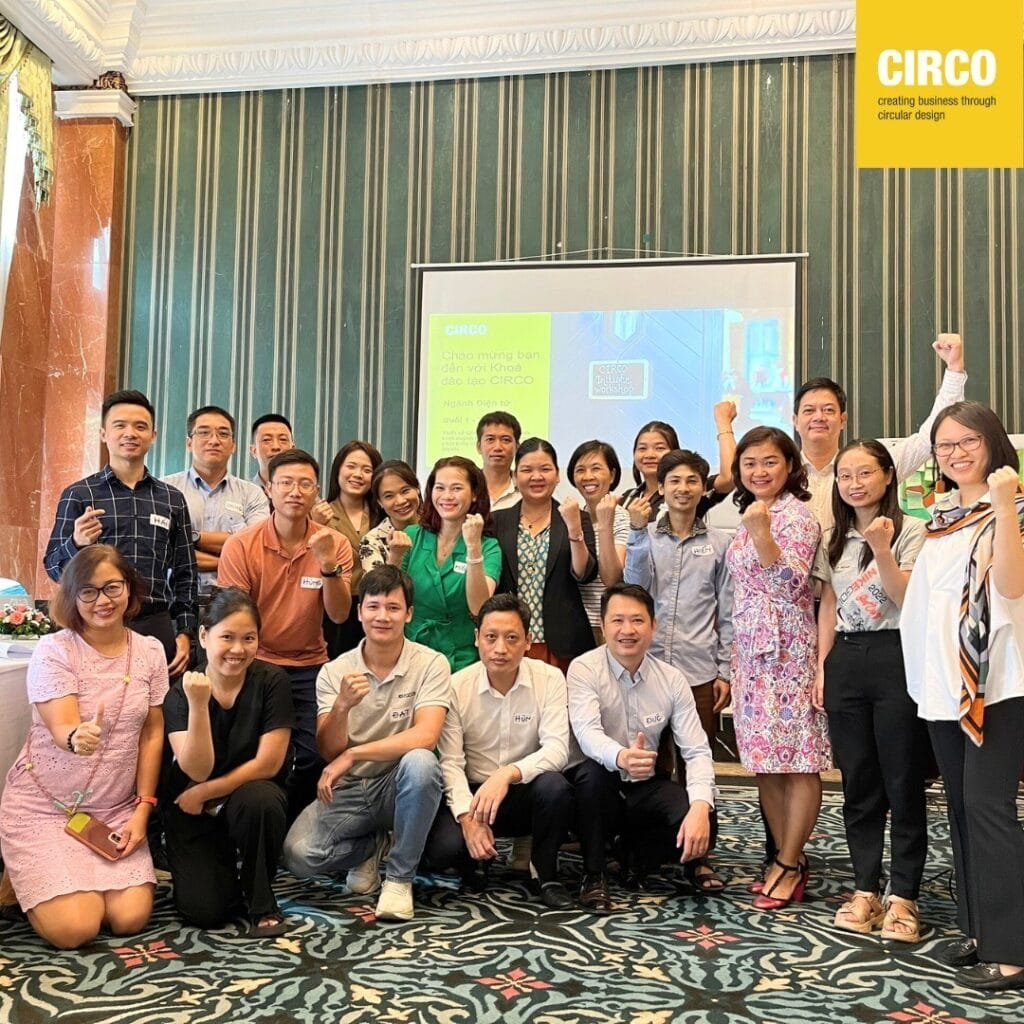Refillables Đong Đầy Refill vs Landfill – Circular Packaging

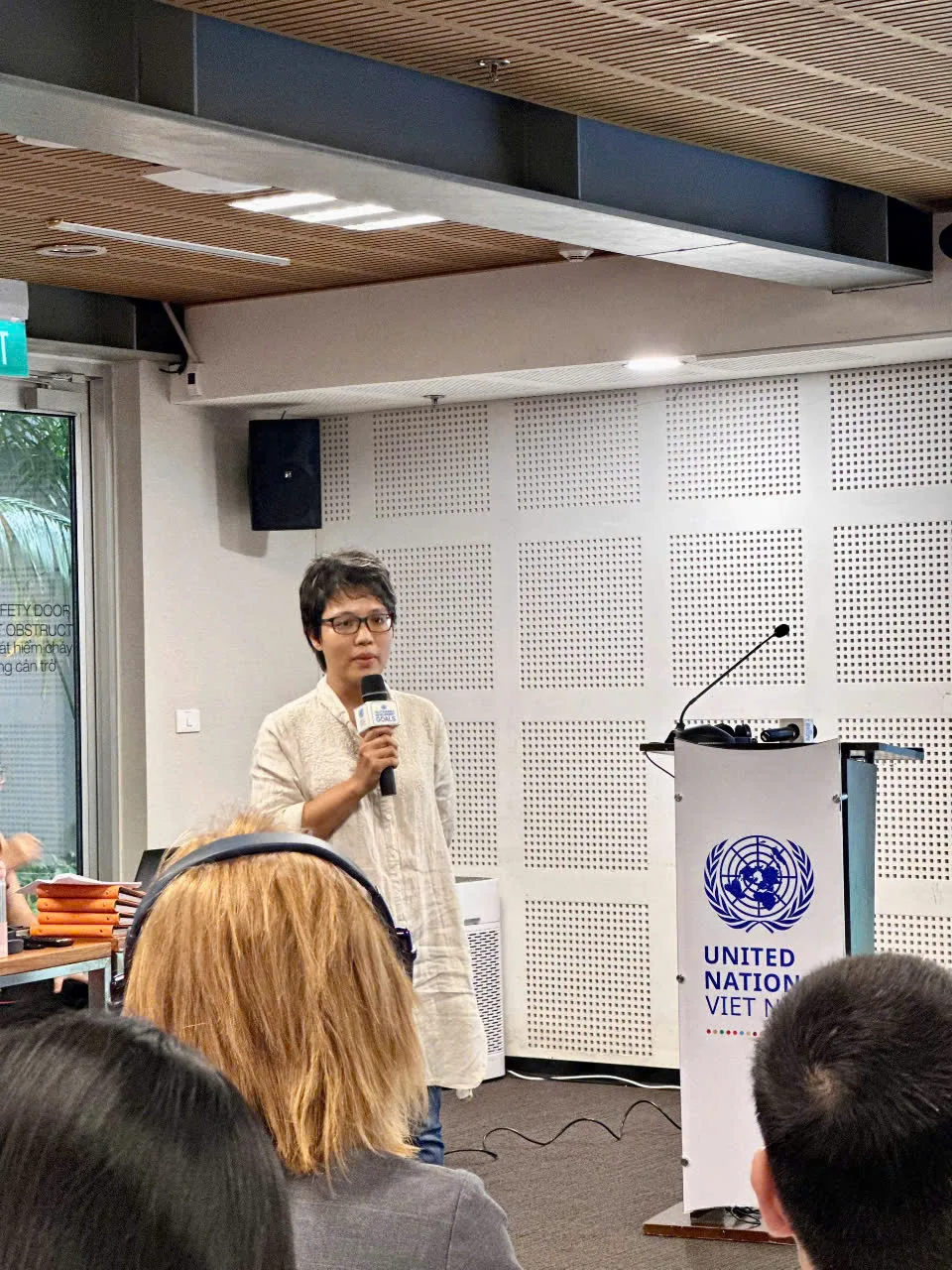
Ms. Vũ Thị Mỹ Hạnh, Director of Refillables Đong Đầy
Refillables Đong Đầy, a pioneering Vietnamese reuse store, has leveraged the CIRCO Training they participated in in 2024 to refine their strategy and scale their impact. By adopting the “Products That Last” circular design strategy, the team developed standardized, durable reusable containers with replaceable parts and improved product transparency.
“Before CIRCO, we relied on donated containers that weren’t designed for reuse, which caused many challenges in our refill system. The CIRCO training helped me take the many ideas in my head and turn them into practical steps. I used to have ideas but didn’t think through all the steps or actors involved, so I never got the results I wanted. Through CIRCO, I learned to connect the whole process—from design to customer use—and we shifted to creating our own standardized reusable bottles, in 2- and 5-liter sizes, with replaceable parts and clear labeling. This concrete example of designing packaging specifically for reuse has made our refill business more practical and scalable. CIRCO guided me step by step to achieve the results I was aiming for.”
Founded in 2018 in Central Vietnam, Refillables Đong Đầy started as a bold zero-waste retail experiment. From the beginning, it focused on delivering eco-friendly daily products like cleaning agents and food items without single-use packaging. As of February 2025, the initiative has completed over 65,775 refills for both individual customers and businesses—demonstrating its tangible impact on waste reduction.The store typically orders large quantities (20–30 liters) of refillable products from suppliers using a return-and-reuse system. This closed-loop model aims to eliminate single-use packaging throughout the supply chain—from producer to end-user. Over time, the team noticed growing demand from local homestays, villas, and restaurants interested in safer, less toxic products for their staff and guests.
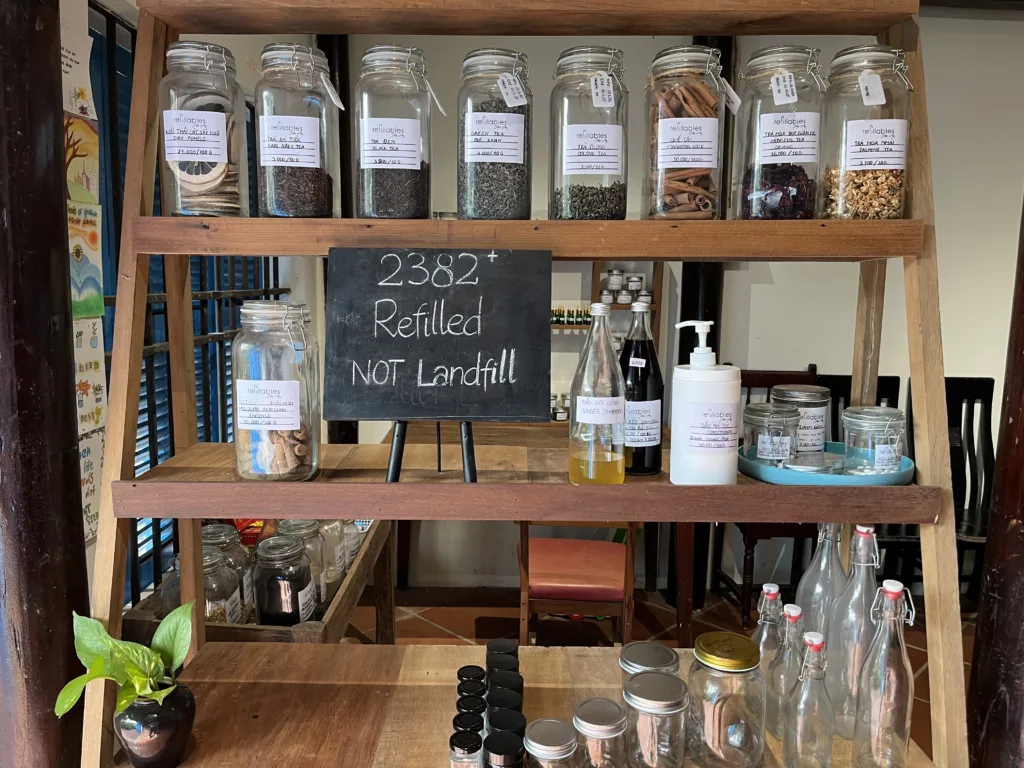
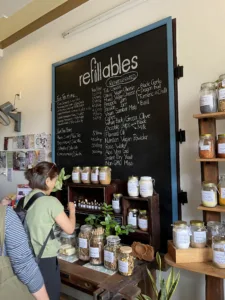
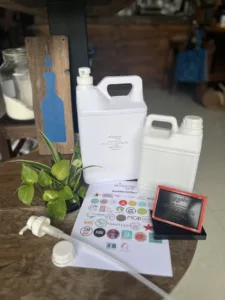
Following the CIRCO Training Track, Refillables Đong Đầy introduced new 2-liter and 5-liter standardized refill containers. This initiative was developed based on customer feedback and operational needs to directly address previous challenges—such as lost bottles, inconsistent sizes, and logistical inefficiencies—that stemmed from a reliance on second-hand containers.
Currently, approximately 10 of our B2B customers are using the new line. The immediate benefits observed over the last six months have been primarily operational; the standardized bottles streamline our transportation and delivery, creating a more solid and legitimate service. A key improvement is the use of a stamp for basic product information and a return message, which is more reliable than previous labels that often failed to stick, although the stamp’s size does limit the content. While our existing business customers prioritize function and may not see a significant difference, we anticipate the professional design will be more attractive to new clients, ultimately laying the groundwork for a more scalable and efficient reuse system. While tracking codes and advanced labels were part of the CIRCO design strategy, they are still in the research and development phase. Similarly, the idea of using recycled plastics for producing bottle pumps and caps is being explored. The CIRCO Track helped Refillables clarify these priorities and strengthened their commitment to long-term improvements in packaging, logistics, and circular operations. To support its circular model, the team is pursuing partnerships for sustainable packaging, including containers made from recycled materials and better printing options. As operations expand, a digital solution to track these containers will also be essential.
About CIRCO Hub Viet Nam
CIRCO Hub Viet Nam was established as part of the global programme “Go Circular” which is commissioned by German Federal Ministry for Economic Cooperation and Development (BMZ) and implemented by Deutsche Gesellschaft für Internationale Zusammenarbeit (GIZ) GmbH. Its objective is to support the transition to a Circular economy at global level and in the three partner countries: Colombia, Ghana, and Viet Nam. Go Circular works in three priority areas: i) Promoting innovation, ii) Scaling up solutions and iii) Action in global alliances. In Viet Nam Go Circular works closely with the Ministry of Finance (formerly Ministry of Planning and Investment (MPI)) as the key political partner to disrupt the linear economy with circular business models.
